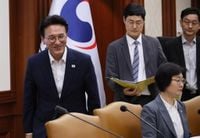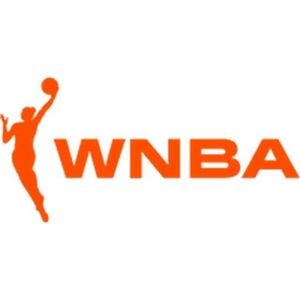As summer vacation approaches, South Korea's government and food industry are teaming up to ease the pinch of rising prices on consumers. With inflation still a pressing concern, especially in processed foods and agricultural products, a series of aggressive discount campaigns and supply measures are set to roll out through July and August 2025, aiming to bring relief to households during the peak holiday season.
On July 4, the Ministry of Agriculture, Food and Rural Affairs (MAFRA) convened a meeting with major players in the food and distribution sectors to discuss collaborative efforts to stabilize prices. By July 7, MAFRA announced that participating companies had agreed to launch concentrated discount events focusing on products that weigh heavily on consumer wallets, such as ramen, bread, beverages, and kimchi. Discounts of up to 50% were promised, targeting products with high consumer price sensitivity and those popular during the summer months.
Industry giants like Nongshim, Ottogi, and Paldo are leading the charge. Nongshim plans to slash ramen prices by 16 to 43% at large supermarkets and offer 2+1 promotions at convenience stores. Ottogi will offer 10 to 20% discounts on ramen in large marts and run a variety of giveaway events—1+1, 2+1, and 3+1—at convenience stores. Paldo is matching these efforts with 10 to 20% markdowns at big marts and even steeper discounts ranging from 2 to 50% at convenience stores.
Baked goods and snacks aren't being left out. SPC is offering 10 to 50% discounts on bread, hotteok (a traditional Korean pancake), and sandwiches at large marts until July 17, complemented by 2+1 promotions at convenience stores throughout July. The coffee sector is also participating robustly; Dongsuh Foods is discounting products by 5 to 40% and running additional giveaways at convenience stores, while Namyang Dairy offers a steady 10% off at supermarkets.
Soft drink manufacturers Coca-Cola and HaitaiHTB are joining the fray, with discounts between 20 and 50% at large marts and supplementary giveaways at convenience stores. Kimchi, a staple that saw notable price increases recently, will see significant discounts as well. CJ CheilJedang offers 10 to 30% off through its online mall and large supermarkets, Daesang provides 30 to 35% discounts, and the Kimchi Association's joint brand, Sagye Dam, extends a 10% discount.
Major distribution chains like E-Mart, Lotte Mart, Homeplus, GS Retail, and Nonghyup Hanaro Mart are set to host their own summer food and processed food discount events throughout July and August, creating a widespread network of price relief across the country.
The government’s involvement extends beyond processed foods. On July 10, a high-level meeting chaired by Prime Minister Kim Min-seok at the Government Complex Seoul unveiled a comprehensive, pan-government plan to stabilize the prices of essential goods. The Ministries of Economy and Finance, Agriculture, Food and Rural Affairs, Oceans and Fisheries, and Trade, Industry and Energy all pledged coordinated efforts to ease the cost of living.
The Ministry of Economy and Finance said it would closely monitor and manage price fluctuations for items like cabbage and fruits, which often see volatile summer pricing. Meanwhile, MAFRA announced plans to increase the supply of Hanwoo (Korean beef) by 30% compared to usual levels and support a 40% discount on key agricultural products from July 17 to August 6. Traditional markets will also participate, with refund events scheduled at 130 locations from August 4 to 6.
Seafood prices, which have recently surged, are a particular concern. The Ministry of Oceans and Fisheries is releasing 1,100 tons of government-stocked mackerel and squid to stabilize supply and prices. Additionally, from July 28 to August 21, seafood discount events offering up to 50% off will be held at supermarkets and online malls, providing consumers with affordable options during the vacation period.
On the energy front, the Ministry of Trade, Industry and Energy is keeping a watchful eye on oil prices and conducting inspections at gas stations to prevent price gouging, ensuring that fuel costs do not exacerbate the overall inflationary pressures.
The government is also preparing for the summer's extreme weather risks. A disaster response system is being reviewed to ensure the '2-hour work, 20-minute rest' rule is applied in high-risk workplaces to protect workers during heatwaves and heavy rains. A budget of 35 billion won, including an additional 15 billion won from supplementary funds, has been allocated to reinforce disaster preparedness, underscoring the administration's commitment to safeguarding both the economy and public health.
Prime Minister Kim Min-seok emphasized the importance of translating these plans into tangible benefits for citizens, urging ministries to conduct further reviews and implement detailed, effective policies. "Today’s discussed measures must be supplemented with additional checks to ensure they resonate in the real world," he said, calling for "urgent and meticulous policies."
Despite these efforts, the consumer price index for processed foods rose by 0.3% in June compared to the previous month and by 4.6% year-on-year, with chocolate, kimchi, and coffee among the items showing the highest inflation. MAFRA attributed these increases to rising costs for raw materials, labor, and energy, alongside persistently high international prices for cocoa and coffee.
However, there is cautious optimism. Recent stabilization in the prices of palm oil, sugar, and exchange rates is expected to ease some of the cost burdens faced by food companies. The government has been proactive in this regard, applying tariff quotas to 21 imported raw materials, including coffee and cocoa, exempting value-added tax on these imports, and expanding funding support for raw material purchases.
All told, this coordinated campaign between government bodies and private industry reflects a determined push to shield consumers from inflationary pressures during the summer holiday season. Through significant discounts, increased supply, and vigilant price monitoring, South Korea aims to ensure that families can enjoy their vacations without undue financial stress, even as global economic challenges persist.




